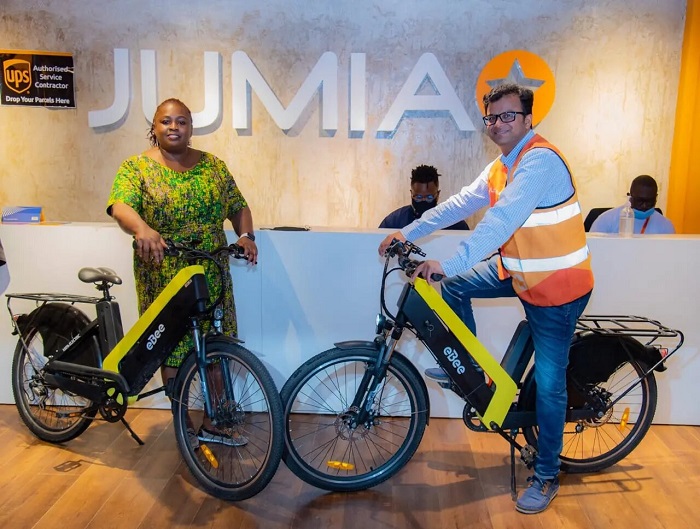advertisement
Jumia Kenya Partners With eBee To Launch E-Bikes

Ecommerce platform Jumia Kenya is the latest digital Company to go green in transportation after partnering with eBee Africa to launch electric bicycles. The partnership will see eBee Africa provide electric bicycles to Jumia with the aim of reducing logistics costs and Carbon dioxide (CO2) emissions in Nairobi.
Currently, Jumia fleet comprises fuel-based motorbikes which deliver products to their customers. The e-bicycles are considered the best alternative because they do not consume fuel and have lower maintenance costs which translate to lower delivery fees for consumers, as well as higher incomes for riders. They also come equipped with a powerful electric motor and battery that can last an entire day of deliveries after a 4-hour charge.
While announcing the partnership, Jumia Services Country Manager, Ankur Agarwal said, “The most exciting thing about e-bicycles & EVs more generally, is that they make business sense! It’s a win-win for society and the bottom line. This pilot with eBee is the beginning of a conscious push across Africa into EVs. We hope we can play a part, as early adopters, in speeding up the penetration of the industry in Africa”.
advertisement
eBee Africa Managing director, Olivia Lamenya said the partnership is in line with their mission to have a million electric bikes in Africa by 2030.
“eBee Africa provides the electric solution to mass transportation in rapidly-growing African cities. By partnering with Jumia, we aim to facilitate their deliveries in Nairobi using an end-to-end 0 emission transport network. Providing affordable, worry-free, and clean mobility contributes to our mission to empower every man and woman to do business and to oversee their future. Our audacious goal is having 1 million ebees on the road in Sub-Saharan Africa by 2030,” she stated.
According to the World Health Organization, automobile pollution causes at least 5,000 deaths per year in Kenya. With this realization, more companies are turning to greener transportation options to cut their carbon emissions.
advertisement
In July this year, mobility Company Bolt launched its green plan in Kenya by introducing electric tuk-tuks and e-bicycles in the food category in June. Also, a local e-commerce last-mile delivery firm Sendy launched electric vehicle fleets comprising of tuk-tuks.
While Africa’s automotive market has demonstrated the potential to shift to EV, the efforts are hampered by low demand, lack of reliable power, high taxes on EV components, lack of supportive regulatory frameworks and high electricity tariffs among others.